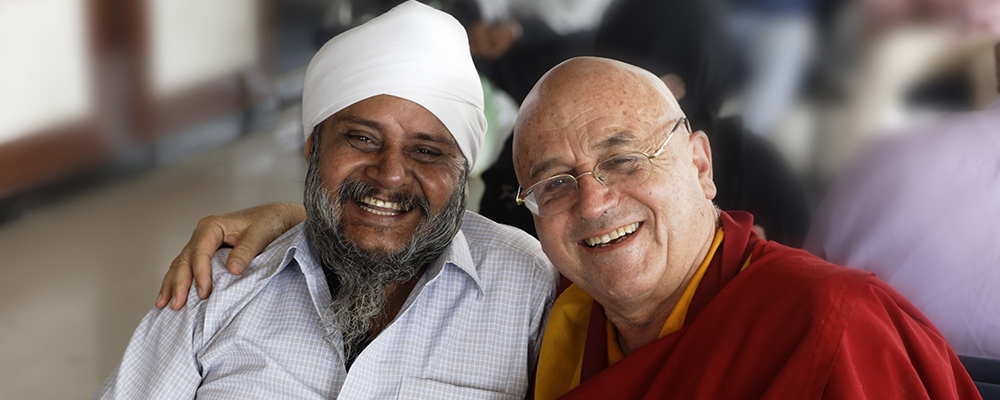
Every evening, for 25 years, Gurmit Singh, shuts his clothing store in the sprawling city of Patna for the night, gets on his scooter, and visits the neediest people. These are the people who are left behind by the two main hospitals in the capital of Bihar, the poorest state in India. They are called “lawaris,” the “abandoned,” because they have no one to help them or to whom they can reach out.
On his way Gurmit buys warm meals, vegetables, eggs, yogurt, and sweets to feed them. We works past midnight bringing food and comfort to those who are housed in dirty and foul-smelling big communal rooms. Many are lying directly on the concrete floors of the town’s two large hospitals or on rudimentary benches, since proper beds are taken 100% by wealthier patients. Nurses come by twice a day, and serve a barely edible meagre meal. For the rest of the time, the patients are left to their sad fate.
But when Gurmit Singh arrives with his provisions smiles light up their suffering faces! He feeds by hand those who are unable to do so themselves, and he brings them the medications they need and cannot afford. He gives blood regularly and encourages his friends to do the same.
The trigger for his kind actions came 23 years ago when a woman, whose living was selling plastic bags door-to-door, came into his store in tears, carrying her little boy who was severely burned.
Gurmit brought them to the hospital to discover that the doctors were on strike. Outraged, he found a way to get first-aid care for the boy, and then decided to come back to take care of those neglected by the hospital and by society.
To pay for these expenses, Gurmit and his five brothers, who live in modest dwellings, put 10% of their revenues in a donation box. “In our family, we have replaced parties and birthday gifts with a contribution to the pot.”
Gurmit expects nothing in return for his goodwill, and yet twice both hospitals where he goes to daily have denied him access! Perhaps they do not wish to be reminded day after day that kindness must take precedence above all other considerations.
His greatest concern is to miss one of his daily visits. “Who will take care of them if I’m not there?” As a result, he has not gone on a vacation and has not left Patna in 13 years for fear of abandoning the abandoned. The one exception was when the Sikh community honored him for his devotion.
Gurmit Singh is a lesson in humility for all of us who dedicate ourselves to humanitarian projects. He works for the wellbeing of others based on a heartfelt impulse that few of us act on, even though we all have the potential to do so.
It is this “banality of goodness,” this “overwhelming familiarity” with kindness embodied by Gurmit Singh, that touches us and moves us so. In him we discover goodness in its pure form, unpretentious, and down-to-earth.
I dedicated five years of work to try and demonstrate in an 800-page book that true altruism exists, that we can cultivate it, and that the pursuit of self-serving happiness is bound to fail. Gurmit Singh expresses all this in just a few words, “Happiness is helping others.”
Non-governmental organizations (NGOs) such as ours (Karuna-Shechen) try to expand our mission and rally fellow citizens. But we all need examples to inspire us, models personifying kindness in its most bare and essential form. The Gurmit Singhs of this world light our way and rekindle our trust in human nature.
Albert Schweitzer wrote “The only ones among you who will be really happy are those who have sought and found how to serve.” Not everyone can be awarded a Nobel Peace Prize, but we can all be a Gurmit Singh. We simply need to open wide our hearts.